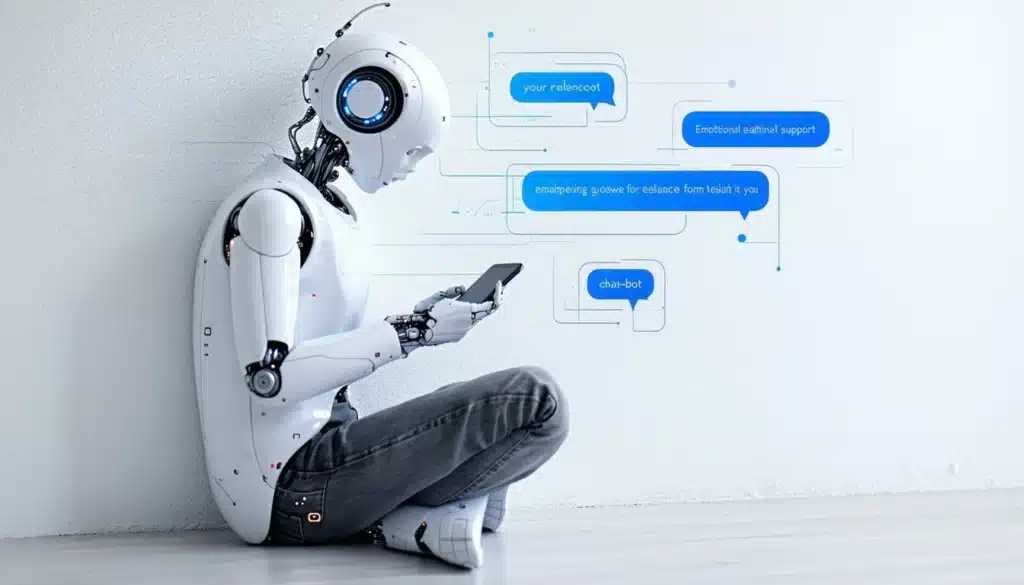Why Our Growing Attachment to Machines Should Both Excite and Alarm Us
The Rise of the Digital Therapist
AI companions are being welcomed as the future of mental health support — always available, always responsive, never judging. But here’s the question no one wants to ask: What happens when we feel safer being vulnerable with a machine than with another human? From teens navigating anxiety to overworked professionals managing burnout, millions are turning to emotionally responsive chatbots. It’s a breakthrough in access and scalability — but it may also be a warning. Not just about our technology, but about the society building it.
The Illusion of Empathy
AI mental health tools like Woebot, Wysa, and GPT-based chatbots simulate empathy. But simulation is not the same as care. These systems don’t feel with you. They don’t hold your grief. They respond — but they do not relate. And yet, users form emotional bonds. Some describe their AI companion as the first “thing” that listened without judgment. Others report withdrawal-like symptoms when apps are deleted. This isn’t just a design concern — it’s a developmental one. When emotional regulation is outsourced to something incapable of human reciprocity, we must ask: What kind of relational blueprint are we embedding into the psyche?
Who Gets to Decide What’s “Healthy”?
AI-based mental health tools rely heavily on scripted CBT protocols and sentiment analysis. But mental health isn’t one-size-fits-all. What’s “healthy” isn’t objective — it’s shaped by culture, context, and lived experience. So what happens when a chatbot tells someone in an abusive relationship to “communicate more openly”? Or encourages a grieving person to “focus on the positive”? Accountability isn’t just a legal question — it’s a structural one. Who decides what these systems should say? What happens when cultural bias, ableism, or social normativity gets encoded as “support”? Without transparent guardrails and interdisciplinary oversight, we risk scaling harm in the name of help.
Emotional Convenience vs. Emotional Truth
The emotional support offered by AI companions is engineered to be frictionless. But healing isn’t frictionless. It requires discomfort, rupture, reflection, and repair. When emotional support is optimized for ease, we flatten the full spectrum of the human experience. We teach people to expect comfort, not complexity. We reward “feeling better,” even if it means suppressing what’s unresolved. We confuse emotional literacy with emotional bypassing. Emotional intelligence isn’t a UX problem. It’s a relational one.
What We Believe at inTruth
At inTruth Technologies, we reject the premise that emotions can be optimized like interface buttons or toggled like settings. Emotions are not noise in the system — they are the signal. Our position is clear:
- Emotion is biological. It’s not just a feeling — it’s a physiological language.
- Emotion is relational. It lives in our bodies, our interactions, and our nervous systems.
- Emotion is intelligent. It carries information about what matters, what’s unresolved, and what needs repair.
Where others simulate empathy, we build systems that mirror the real-time emotional truth of the body. This isn’t synthetic support. It’s emotional infrastructure — designed not to replace human connection, but to deepen it.
A Provocation to the Industry
AI companions are revealing something uncomfortable: Many people would rather talk to machines than risk being misunderstood by a human. That should terrify us. It should also challenge us — to do better. To build systems that don’t just soothe users, but strengthen their capacity for connection. To create tools that honor the complexity of being alive, not flatten it into convenience. If we continue down this path without reflection, we won’t just lose the art of listening. We’ll lose the will to be known.
Where Do We Go From Here?
In five years, the most trusted therapist in your life may not be human — and that should both excite and alarm us. AI companions aren’t going away. The real question is: What values are we encoding into them? And what human capacities are we eroding in return? At inTruth, we believe emotional intelligence is not a feature — it’s a foundation. We’re not teaching machines how to care. We’re building systems that remind people how to feel.
Ready to explore what emotion-aware technology can really do?
- Join our newsletter for cutting-edge insights at the intersection of AI, emotion, and ethical design
- Explore our upcoming Intelligence Training Program
- Or contact us to collaborate on ethical AI integrations and mental health applications




